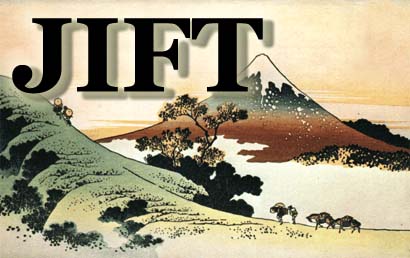Joint Institute for Fusion Theory
Programs
The Joint Institute for Fusion Theory (JIFT) is one of the three programs through which the US-Japan Fusion Research Collaboration is organized. The other two programs are the Fusion Physics Planning Committee (FPPC) and the Fusion Technology Planning Committee (FTPC).
Objectives
The distinctive objectives of the JIFT program are:
Both objectives are pursued through collaborations between U.S. and Japanese scientists by means of various types of exchange program activities, namely, workshops, exchange visitors.
Projects
Each year the JIFT program usually consists of four topical workshops (two in each country) and six exchange scientists (three from each country).
The topics and also the participating scientists for the JIFT exchange visits and workshops are selected so as to have a balanced representation of critical issues in magnetic fusion research, including both fundamental problems as well as questions of near-term significance, and also to take into account the specific capabilities and interests of both countries. The Japanese and US members of the JIFT Steering Committee agree together on the appropriateness of proposed topics before recommending them.
There had also been a third category of JIFT exchange acivities, called Joint Computational Projects. This program was instituted in 1985, to take advantage of the dedicated data link between Japan and the US. The joint computational projects allowed JIFT participants to work jointly on code development and data analysis and to have access to computers in their home countries. By mutual agreement between Japan and the US, this category of JIFT activities was terminated as of April 1, 2009, because the regular Internet had begun to provide a sufficiently fast communication tool for scientists who wished to access their institutions' computers remotely and exchange data through low- and medium-bandwidth lines. During its 25 years of existence, this program sponsored 210 joint computational projects. The JIFT Steering Committee wrote a report entitled "Final Report about the US-Japan (MEXT) Data Link for Fusion."[1]
Japanese JIFT Website
A companion web page (in Japanese) about JIFT activities is maintained at
http://www-nsrp.nifs.ac.jp/JIFT/.
Go to: Plasma Physics Home Page | IFS/FRC Directory | UT Physics Department | UT Central Web | UT Electronic Directory
